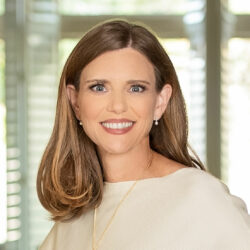Empower Self-Organizing Teams (#3 Reset Performance Management)
The digital age belongs to knowledge workers who think outside the box. No wonder constricting processes and micromanagement are not going down well. Make sure to bring these talents together in collaborative, self-organizing teams and throw fast feedbacks, constant communication, access to data and knowledge, and decentralized decision-making into the mix. If you are a manager and worried about accountability; here are the good news: Contrary to popular belief, Agile is a highly disciplined way of working. And Agile teams prove that every day.
This article is part of the series “How Lean | Agile Enterprises Push the Reset Button on Performance Management”
#3: Empower self-organizing teams and hold them accountable
In developed and even emerging economies, there is a strong emphasis on knowledge work over industrial skills. Consequently, employment in those knowledge-based economies are characterized by an increasing demand for more highly skilled knowledge workers.
According to Wikipedia, knowledge workers include anyone whose job it is to solve “non-routine” problems that require a combination of convergent, divergent, and creative thinking. In other words, these are the people responsible for exploring and creating new ideas, products, designs, and models – all that great stuff that keeps 21st century enterprises going.
As organizations (and in a larger sense as a society), we depend on their ability to challenge, innovate, and create. We employ them for their skills to think outside the box, yet we expect them to follow our predefined (industrial era) processes to a tee. We ensure compliance by controlling and micromanaging them every step of the way, even if we do not know what steps are actually needed for a specific solution – because it has never been done before.
It goes without saying that this mix does not sit well. That’s why we need to embrace a different approach so that the intrinsically motivated and highly talented people can deliver the kind of performance we expect from them, the kind of performance they are capable of delivering. The growth of an organization is tightly linked to its ability to attract and engage the right talents and find a way to boost their performance.
At the same time, today’s challenges have a complexity and dynamic that can rarely be fulfilled by one person. Instead, it takes a team to jointly create solutions. In Agile, we bundle them into interdisciplinary power teams of ±7 people and connect them with other teams that work on the same epic. They collaborate, align assignments, identify, and if possible, eliminate dependencies and honor their commitments.
The teams benefit from transparency, access to data, constant communication, knowledge sharing, and fast feedbacks. Additionally, inspect and adapt sessions are embedded into the workflow along with joint planning and commitment and daily check-in standups.
As a result, everyone is highly engaged and involved in the definition of goals. It is up to each team to break down each objective into appropriate tasks and allocate them accordingly.
Giving teams all that latitude does not mean that they lack self-control or that we don’t hold them accountable.
Managers often find it difficult to wrap their heads around self-organization and empowerment. They are afraid to lose control and open the backdoor to slacking, but the reality is far from it. Contrary to popular belief, Agile is a highly disciplined way of working. Agile teams prove that day in and day out.
By allowing the teams more self-determination, it is now up to the managers to become inspiring leaders whose role it is to mentor and coach, provide feedback and insights, facilitate and remove impediments, and above all, develop people and unlock their intrinsic motivation.
Are you ready to empower self-organizing teams?
